News
Atiku, Obi, Kwankwaso, Others Must Work Together To Defeat Tinubu In 2027 – Lukman
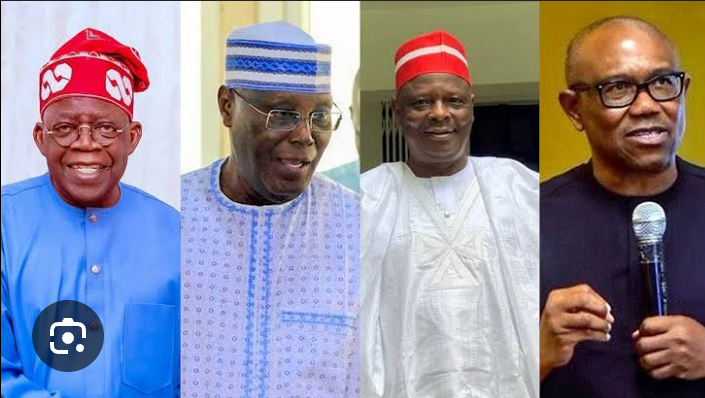
By Kayode Sanni-Arewa
Ahead of the 2027 general election, the immediate past National Vice Chairman of the All Progressives Congress (APC), Salihu Lukman, is calling on former Vice President Atiku Abubakar, former governors Peter Obi, Rabiu Kwankwaso and Rotimi Amaechi to team up in order to defeat the ruling All Progressives Congress.
In a statement released in Abuja on Sunday, Lukman also listed in the proposed merger, former Vice President Yemi Osinbajo, former governors Nasir El-rufai, Rauf Aregbesola, Kayode Fayemi and Ibikunle Amosun, among other political leaders.
Lukman in the statement titled, “Future of Democracy in Nigeria”, said building the kind of united front capable of moving Nigerian democracy forward require selflessness on the part of Nigerian political leaders.
While lamenting the current situation of the country, the former Director General of the Progressives Governors Forum (PGF), lamented a situation where APC as the ruling party in Nigeria promised to provide the needed leadership to fight corruption but the party has legitimised higher level of corruption in the country and also legitimising the phenomenon of ‘state capture’ virtually at all levels.
The statement read, “What is the future of democracy in Nigeria? Is there any prospect that it can produce leaders who are responsive to national challenges? Being responsive is basically about ensuring that public expenditures are oriented to tackle challenges facing citizens. What are the challenges facing Nigerians today? Poverty, unemployment, insecurity, drugs and substance abuse, millions of out of school children in the North, etc. Not to talk of the additional problems of inflation and the crash of the value of incomes especially in the last one year under the leadership of President Asiwaju Bola Ahmed Tinubu.
Although some officials of the government of President Asiwaju Tinubu have attempted to explain the current hardship Nigerians are facing with reference to the bad economy inherited from the previous administration of former President Muhammadu Buhari, the reality is that both are APC Governments. If anything, APC became very popular in Nigeria on account of the failings of the PDP. What were the failings of the PDP? The failings of the PDP are reflected in the same way today’s challenges are manifesting. If the truth is to be told, whatever was the failings of PDP in 2015, it was less grievous than what it has become under APC in 2024.
“No doubt, former President Buhari had his problem as a leader. However, whatever was estimated to be his failure should be the shared responsibility of APC leaders in varying degrees, including President Asiwaju Tinubu. No leader of APC should attempt to distance himself/herself from the failure of the Buhari era, certainly, not President Asiwaju Tinubu. In one way or the other, APC leaders, without exception, are ‘beneficiaries’ of the Buhari era, just as some of them could claim to be victims. On balance however, APC leaders benefited more from the Buhari era than being victims. At least electorally, former President Buhari made it possible for APC to defeat the PDP. Without former President Buhari, the defeat of PDP in 2015 would have been almost impossible, and by extension, arguably, would have been difficult, if not impossible for President Asiwaju Tinubu to become President of the Federal Republic of Nigeria.
“Unfortunately, having defeated the PDP in 2015, APC failed to produce the needed collective leadership required to manage the machinery of governments produced by the party at all levels. Gradually, APC succeeded in turning democracy on its head. Instead of producing democratic leaders, elected leaders increasingly became emperors and overlords. State machinery became captured and privatised to almost exclusively only serve the interests of elected representatives.
“In other words, business of governments became monopolised to serve the vested interests of supposedly elected leaders. More than anything, state governments in Nigeria are best examples of the phenomenon of governance capture. Key institutions such as State Assemblies, Local Governments, State Independent Electoral Commissions and State structures of political parties, which should regulate the conduct of elected representatives, including Governors and make them accountable to citizens have been privatised and only serve private interests of these elected officials.
“The reality is that Nigerian democracy has legitimised the problem of state capture whereby the machinery of government at all levels are being privatised and oriented only to serve the narrow interests of elected officials. Public resources and funds are allocated or diverted to benefit elected officials. The term, ‘state capture’ is, according to Wikipedia, ‘first used by the World Bank, around the year 2000, to describe the situation in certain Central Asian countries making the transition from Soviet communism.
“Specifically, it was applied to situations where small corrupt groups used their influence over government officials to appropriate government decision-making to strengthen their own economic positions’. This phenomenon of ‘state capture’ as described by the World Bank has virtually become the dominant characteristics of African democracy with hardly any exception. ‘Small corrupt group’ of elected leaders and appointed government officials have ‘appropriated government decision-making to strengthen their own economic positions’.
“In Nigeria, from a situation whereby it is more the case with State Governments, under the APC, between 2015 and now (2024) it has become a national phenomenon and President Asiwaju Tinubu is building on that and perfecting it. For instance, although, under former President Buhari, the legislative arm of government at Federal level (National Assembly) has some semblance of independence with instances of disagreements with former President Buhari, it is now reduced to nothing more than an extension of the Presidency so much so that the Senate President, Godswill Akpabio is turning out to be an uncommon embarrassment to Nigerians, shamelessly desecrating the institution of the Senate and his colleagues.
“His praise singing disposition to President Asiwaju Tinubu is certainly uncommon without any limit. As it is, with Sen. Akpabio as Senate President, the Senate chamber risk being held captive by President Asiwaju Tinubu as it will be unable to register any disagreement with the Executive Arm of government.
“Already, the ruling party, APC, has gone beyond capture to the point of being disbanded. With Dr. Abdullahi Umar Ganduje operating as the National Chairman, organs of the party have been frozen and President Asiwaju Tinubu has assume the over drive mode of disregarding both the constitution of the APC and gradually disrespecting the 1999 Nigerian Constitution as amended.
“To the extend that the people of North-Central stands marginalised in this Government, the provisions of Chapter II of the 1999 Constitution, which direct that ‘the composition of Government of the Federation or any of its agencies and the conduct of its affairs shall be carried out in such a manner to promote national unity, and also to command national loyalty, thereby ensuring that there shall be no predominance of persons from a few State or from a few ethnic or other sectional groups in that Government or in any of its agencies’ is in breach.
“Beyond the APC, other parties, including the PDP, Labour Party, New Nigeria Peoples Party (NNPP), which are today’s main opposition parties, are being manipulated into operating in crisis modes. Their capacity to moblise Nigerians and lead any political opposition against the APC is being undermined. Consequently, President Asiwaju Tinubu is having a field day, practically having his way even when he takes wrong decisions with devastating impact on the lives of Nigerians. It is almost as if another political reality like what we had in 1998 during the era of late Gen. Sani Abacha with parties aptly fitting the description of late Chief Bola Ige of being ‘fingers of a leprous hand’ is today’s Nigerian reality.
The risk of state capture in Nigeria extending to the Independent National Electoral Commission (INEC) is high given that the tenure of Prof. Mahmud Yakubu, current INEC Chairman will end before the 2027 general elections. And with the way President Asiwaju Tinubu betrayed any commitment to appointing competent people into his government, the possibility of appointing a new INEC Chairman who will facilitate the capture of INEC is high.
“Already, within just one year, President Asiwaju Tinubu’s government has moved into the 2027 electioneering mode. Instead of working to earn the support of Nigerians, President Asiwaju Tinubu seems to be leaned on recruiting political merchants whose stock in trade is limited to fanning embers of divisive politics in the country and blackmailing political opponents. Such disposition only lends credence to the prospects of rigging elections in the country.
“So far, with the way President Asiwaju Tinubu has conducted himself as President of Nigeria in the last one year, he has deviated from any credential of being an Awoist. Given how he has mismanaged what could have earned him a legendary status as a leader who courageously ended the corrupt racketeering of petroleum subsidy, and unable to humbly find a way out of what has now become a national tragedy producing endless downward swing in the living conditions of Nigerians, the gap between him and the Chief Obafemi Awolowo is the contrast between darkness and sunlight. Chief Awolowo wouldn’t have contemplated to declare an end to petroleum subsidy in Nigeria without any plan.
“Chief Awolowo wouldn’t have floated the exchange of the Naira against other international currencies without a plan on how to develop local industries and boost local production as a remedy of the current highly import dependent economy. Chief Awolowo would have ran a government with a third tier team of Nigerians, many of whom only fit the description of being survivalists in politics.
“Perhaps, it also needs to be put in context that Chief Awolowo will never have invested N15 trillion on the construction of 700 Kilometre Lagos – Calabar coastal highway, which is more than half of the annual budget of the Federal Government of Nigeria. If being Awoist is to be justified with reference to such humongous expenditure, it would have been allocated to the educational sector. Instead, we have President Asiwaju Tinubu, going against Awoist principles of high public investment in the educational sector and recklessly investing more than half of Nigeria’s annual budget on a highway with remote links to industries and the productive sectors of the economy. This is only made possible because President Asiwaju Tinubu has constituted a government that excluded true Awoists from being part of the government.
“The danger with the way President Asiwaju is running affairs of the country is the potential destruction of the relative advantages of the economy of the South-West region, almost like the way former President Buhari left the Northern region worse off after his eight-year tenure. More than anything, the negative impact of the crash in the value of the Naira and rising cost of production for industries – small, medium and large scale – will be more devastating to the economy of the South-West more than any other region.
These are leaders who prioritised public investment in human capital development at a time when Nigeria didn’t have the kind of resource endowment like we have today. Most of the foundational developments, which led to all our pioneer educational institutions such as University of Ibadan, Obafemi Awolowo University, Ife, University of Nigeria Nsukka and Ahmadu Bello University, Zaria were all created within less than ten years of Nigeria’s independence during the First Republic.
“Now, more than twenty-five years since the commencement of the Fourth Republic, there is hardly any achievement that can be pointed at, both in terms of physical development of the country and human development. Instead, virtually governments at all levels have been captured by so-called elected leaders who operates more like Yahoo-Yahoo fraudsters diverting public resources and assets to their private use. Problems of insecurity in the country, which is a bye product of the crisis of poverty, unemployment, drugs and substance abuse among young people, etc. are hardly getting the deserved attentions of elected leaders.
“Instead of building schools, recruiting teachers and providing books and teaching materials to harness the productive potentials of our population, elected leaders are more disposed to outright embezzlement of government resources so much so that today there are strong speculations of state governors converting substantial parts of their monthly federal allocations to US Dollars at black market rates, which is responsible for why the value of the Naira remain weak.
“As much as the issue of governors converting states monthly federal allocation is a speculation, there are instances whereby the Economic and Financial Crime Commission (EFCC) accused one of the Governors of one of the states in North-Central of diverting more than N20 billion Naira of bailout funds to the state in 2021 to private account. That is the extent to which the incidence of ‘state capture’ at state level has ‘strengthen … economic positions’ of so-called elected leaders to the detriment of citizens. In fact, that is the challenge facing Nigerian democracy.
“If the phenomenon of ‘state capture’ is becoming a federal reality under the APC and President Asiwaju Tinubu, is Nigerian democracy moving to a stage whereby the resources of the Federal Government will almost become the personal resources of the President? Should that be the case, what will be the remedy?
From a situation whereby APC as the ruling party in Nigeria promised to provide the needed leadership to fight corruption, APC has legitimised higher level of corruption in the country, legitimising the phenomenon ‘state capture’ virtually at all levels. With ‘state capture’, democratic institutions such as the legislature, electoral bodies and political parties are emasculated.
“Even traditional institutions are increasingly being reduced to appendages of the executive arm of government. The executive arm of government is becoming more and more the problem of Nigerian democracy, undermining the capacity of elected leaders and governments to respond to challenges facing citizens. With high propensity to subvert laws that compels accountability, most Nigerian elected leaders operate with the corrupt mindset of ‘state capture’ thereby appropriating public resources and assets and converting them to private use.
“Getting out of such a mess will require strong political parties, which are lacking in contemporary Nigerian politics. How can we get political leaders to commit themselves towards building strong political parties? Whether Nigerian democracy can have the kind of future, which could enable elected representatives and governments to competently and effectively respond to challenges facing Nigerians is contingent on the ability of political leaders to produce strong political parties.
“So long as the aspirations of Nigerian politicians is only limited to winning elections and producing new elected leaders, Nigerian democracy will be unable to reverse the phenomenon of ‘state capture’, which is now in the advanced stage of taking over the Federal Government.
“Unfortunately, given the advanced stage of ‘state capture’ at Federal level, most political leaders, including the leading opposition leaders such as Alh. Atiku Abubakar, Mr. Peter Obi and Sen. Rabiu Musa Kwankwaso are all operating in isolation to one another. APC leaders such as former Vice President Yemi Osinbajo, Chief Rotimi Amaechi, Dr. Kayode Fayemi, Sen. Ibikunle Amosun, Mal. Nasir El-Rufai, Ogbeni Rauf Aregbesole etc. who are more like political orphans on account of being excluded from the President Asiwaju Tinubu government have been pushed to the peripheral edges of Nigerian politics.
“Although, there are some indicative political activities taking place around some of these political leaders, it has not graduated to the level of commitment to build the kind of strong political parties capable of threating the APC and President Asiwaju Tinubu, which is needed to guarantee the future of Nigerian democracy.
“Building strong political parties in the country capable of responding to the challenges facing citizens and reversing the phenomenon of ‘state capture’ at all levels is about political leaders agreeing to form a united front across all parties. Forming a united front is about recognising the shortcomings of individual leaders and being able to forgive misgivings of the past. Ability to forgive misgivings of the past is a fundamental requirement for political leaders to be able to orient themselves and provide the needed leadership for national reconciliation. Inability of APC, both under former President Buhari and now under President Asiwaju Tinubu to orient itself on the path of national reconciliation represent one of the big political failure ever experienced in the country.
Given the way the failure of APC has widen the country’s fault lines, it is important that considerations for developing united political front painstakingly aspire to unite political leaders across the country. For instance, the way, the people of the South-East rejected the APC since 2015 must be redressed.
“Any new united political front should gain some measure of high acceptability in virtually all parts of the country.
The requirement for high acceptability from all sections of the country should humble all political leaders in the country, especially Alh. Atiku Abubakar and Mr. Peter Obi not to exploit the need for such a united front by imposing their Presidential ambitions. In the same vein, other APC leaders such as Prof. Osinbajo, Chief Amaechi, Dr. Fayemi, Mal. El-Rufai, Sen. Amosu, etc. (APC political orphans) who in one way or the other have ambitions to become Nigeria’s President must bury such ambitions, at least not during the negotiation to form the united political front.
“The point must be recognised that building the kind of united front capable of moving Nigerian democracy forward require selflessness on the part of Nigerian political leaders. Beyond the requirement of selflessness, to overcome the experience we had under APC whereby after producing the united front, individual leaders superimposed their ambitions to become President the way both former President Buhari and President Asiwaju Tinubu did, the negotiation for the new united political front should prioritise building a party that can serve as a collective platform for negotiations. Leadership of such a party must not be devalued and left only to political surrogates whose mission is only to return their godfathers as candidates of the party for elections.
“If that is to be achieved, the National Chairman of the party must have the stature of a President in all considerations. Other members of the leadership of the party at all levels must have the stature corresponding to respective public servants. The party must be well resourced financially based on capacity to mobilise financial resources and invest in political work, including electioneering process in lines with extant provisions of Nigeria’s laws.
“These are fundamental preconditions for conferring dignity in the management of party work. Agreements reached based on decisions of party organs can be made binding on everyone and the turnover of party leaders moving take positions in government can be reduced. For that to be achieved, issues of funding must be resolved such that no leader of the new political front or party should be the main source of party funding. As much as possible, funding for election should be democratised. Candidates produced by the party must not be allowed to fund their campaigns.
“It is quite disappointing that APC crashed from a situation whereby the party was responsible in mobilising all the campaign funds for former President Buhari in 2015 to a situation whereby the party negligibly contributed to President Asiwaju Tinubu’s campaign funds in 2023. Similarly, virtually all APC candidates funded their campaigns almost exclusively in 2023. Once issues of party funding and funding of candidates for elections are privatise, the capacity to reverse the phenomenon of ‘state capture’ will be weak, if not impossible. APC and President Asiwaju Tinubu can be defeated in 2027, but the problems of corruption in the country may continue to manifest in higher forms, may even go beyond the problem of ‘state capture’.
“We must appeal to all political leaders in Nigeria, across all the political parties in the country to commit themselves in forging a new atmosphere of political unity in the country based selfless disposition, forgiving the misgiving of past and national reconciliation. If APC and President Asiwaju Tinubu are to have any considerable electoral strength in 2027 it will be on account of the current division, which characterise Nigerian politics and make it impossible for any form of cooperation by political leaders.
“Absence of cooperation among political leaders is responsible for the rising incidences of bad governance in the country and is eroding the basis Nigerian nationhood. Once democracy cannot respond to challenges facing citizens, Nigeria as a sovereign entity will be irrelevant and questionable.
“Nigerian opposition political leaders, including the orphaned leaders of APC who are excluded in the APC government of President Asiwaju Tinubu, notably Alh. Atiku Abubakar, Mr. Peter Obi, Sen. Rabiu Musa Kwankwaso, Prof. Yemi Osinbajo, Chief Rotimi Amaechi, Dr. Kayode Fayemi, Sen. Ibikunle Amosun, Mal. Nasir El-Rufai, Ogbeni Rauf Aregbesola, etc. must unite to rescue Nigeria. Whether producing the united political platform can be achieved through merger of existing parties, forming a new party or rebranding any of the existing parties is a decision that can be determined if leaders agree to come together and unite.
“First thing first, political leaders must recognise that rescuing Nigeria from its current slippery slope is about teamwork and partnership. It is only through conscious and committed teamwork that we can rebuild important democratic institutions such as political parties, legislatures, electoral bodies, and other institutions, which could hold elected officials accountable. Beyond holding elected officials accountable, it is only when we have strong political parties with leaders who run affairs of the party based on provisions of party constitutions that processes of leadership selection can be sanitised in the country.
“Political leaders in Nigeria, notably Alh. Atiku Abubakar, Mr. Peter Obi, Sen. Rabiu Musa Kwankwaso, Prof. Yemi Osinbajo, Chief Rotimi Amaechi, Dr. Kayode Fayemi, Sen. Ibikunle Amosun, Mal. Nasir El-Rufai, Ogbeni Rauf Aregbesola, etc. must answer the question as to whether they want to allow their narrow political ambition to continue block the path for the democratic development of Nigeria? Or why shouldn’t they aspire to register their name as political leaders who were able to rise to the occasion in Nigeria’s hour of national need by coming together to forge a united political front, which could transformed Nigeria’s democracy and reverse the phenomenon of ‘state capture’ that produced ‘small corrupt groups’ of used ‘government officials’ who are appropriating ‘government decision-making to strengthen their own economic positions’?
“May God unite all patriotic political leaders in Nigeria across all parties, including orphaned of APC and strengthen them with the capacity to be selfless and commit themselves to building all the demleadersocratic institutions that can make elected leaders and governments at all levels accountable to citizens based on which Nigeria’s democracy is effectively capable of responding to national challenges and meeting the expectations of citizens. Amin!”
News
NJC investigates 18 Imo judges over suspected age falsification
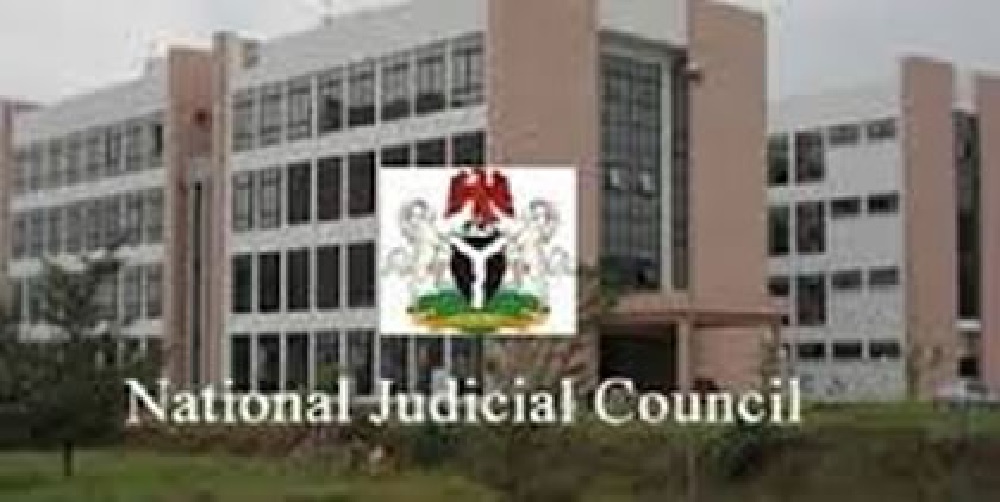
The National Judicial Council has launched a probe into 18 judges in the Imo State judiciary over allegations of age falsification, in a development raising fresh concerns about integrity and transparency within Nigeria’s judicial system.
The NJC, in a statement on Thursday by its Deputy Director of Information, Kemi Ogedengbe, confirmed that the allegations were being treated with utmost seriousness and were currently under review.
“Allegations of this nature require detailed investigation before any action can be taken,” Ogedengbe stated.
“The NJC is investigating the allegations and may take a decision by the end of the month. For now, we cannot act without completing our inquiries. The council will convene and make decisions on the matter.”
The investigation follows a petition submitted by a civil society group, Civil Society Engagement Platform, which described the matter as an “unprecedented breach of judicial integrity.”
The group alleged that the judges deliberately manipulated their birth records to either prolong their tenure or gain appointments within the judiciary.
In a letter addressed to the NJC Chairman and Chief Justice of Nigeria, Justice Kudirat Kekere-Ekun, the platform cited discrepancies in the judges’ official documents, including Law School registration forms, Department of State Services reports, and Nominal Rolls.
The petition, signed by CSEP’s Director of Investigation, Comrade Ndubuisi Onyemaechi, included what it described as compelling documentary evidence marked as Exhibits 001 to 018.
Among those named in the petition is Justice I. O. Agugua, who reportedly has two different birth dates—May 10, 1959, and May 10, 1960—and is also facing separate allegations of misconduct.
Justice C. A. Ononeze-Madu is alleged to have birth records stating both July 7, 1963, and July 7, 1965, while Justice M. E. Nwagbaoso is accused of presenting conflicting dates of birth—August 20, 1952, and August 20, 1962.
The remaining 15 judges also reportedly have varying inconsistencies in their personal data, a revelation that has intensified public scrutiny of the judiciary’s accountability mechanisms.
The NJC, which is constitutionally empowered to discipline judicial officers, is expected to reconvene soon to deliberate on the findings of its inquiry and take appropriate disciplinary actions where necessary.
The unfolding development comes amid mounting calls for institutional reforms to restore public trust in the judiciary and reinforce ethical standards across all arms of government.
News
Delta committed to safeguard its cultural heritage – Oborevwori
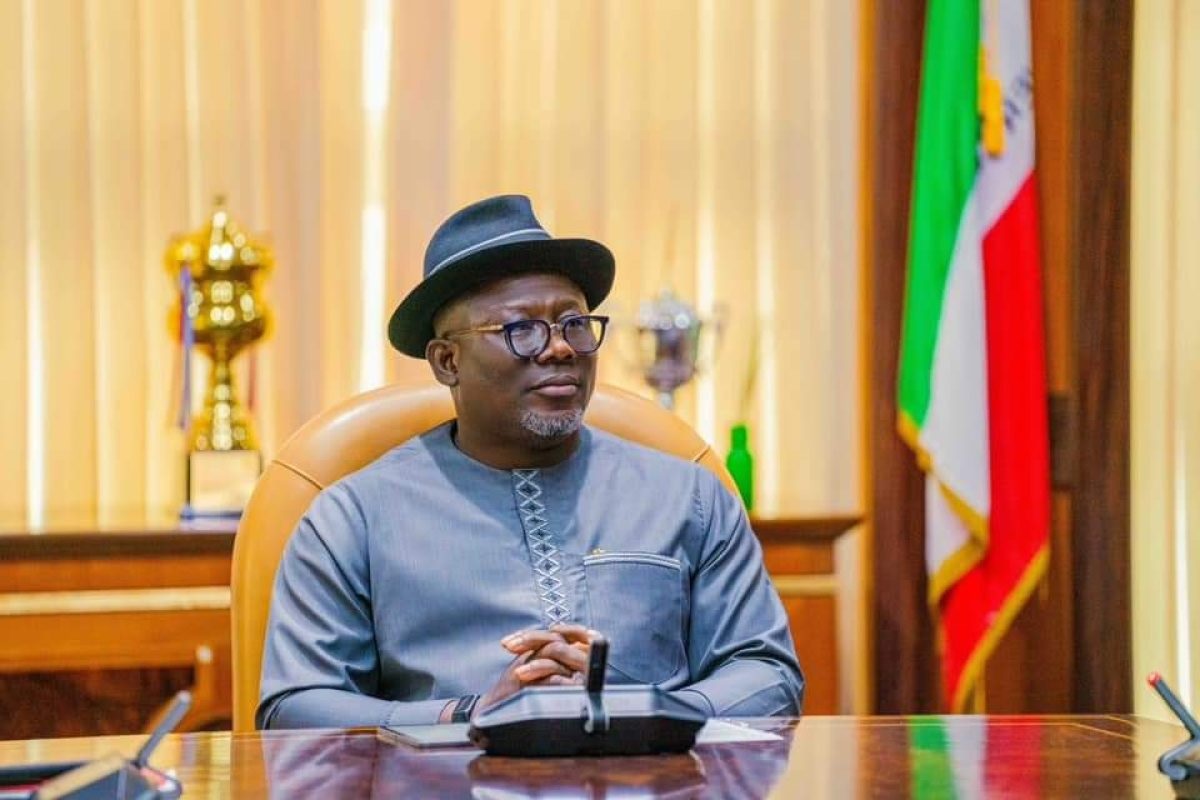
Delta State Governor, Sheriff Oborevwori, has reaffirmed his administration’s commitment to the preservation and promotion of the state’s rich and diverse cultural heritage, describing cultural festivals as vital tools for sustaining indigenous identity.
Oborevwori made this known on Thursday while receiving the President and leadership of the Organisation for the Advancement of Anioma Culture, who paid him a courtesy visit at Government House, Asaba.
Speaking during the meeting, the governor commended OFAAC for its over two decades of dedication to the promotion of Anioma cultural heritage, describing the body as a “vehicle of unity” in Delta State.
He pledged his administration’s full support for OFAAC and similar cultural organisations that contribute to peace, unity, and development.
“I commend OFAAC’s tirelessness and dedication to preserving Anioma culture, heritage, and identity,” Oborevwori said. “Your efforts are crucial in promoting our rich traditions and values.
As a government, we reaffirm our commitment to preserving cultural heritage across the state and supporting initiatives that promote festivals and language, which are essential in shaping our identity.”
Oborevwori also expressed gratitude to the people of Delta North for their overwhelming support during the last governorship election, noting that he secured victory in all nine local government areas within the Anioma region.
“Under our M.O.R.E. Agenda, we have implemented key projects across the Anioma nation and throughout the state. I am particularly grateful to the Anioma people for their strong support and love,” he said.
He further lauded the inclusiveness of OFAAC’s activities, noting its practice of inviting other ethnic groups to its events, which he said fosters unity and cultural harmony across the state.
Earlier, OFAAC President, Arc. Kester Ifeadi, said the purpose of the visit was to formally inform the governor about the group’s forthcoming cultural fiesta, scheduled for Easter Monday.
He described Oborevwori as a “detribalised leader” and commended his administration’s developmental strides across all three senatorial districts in the state.
Ifeadi reaffirmed the support of the Anioma people for the governor’s M.O.R.E. Agenda, emphasising that OFAAC would continue to be a platform for promoting unity among Delta’s various ethnic nationalities.
News
Scores killed as NAF fighter jet bombs insurgents’ stronghold in Sambisa forest
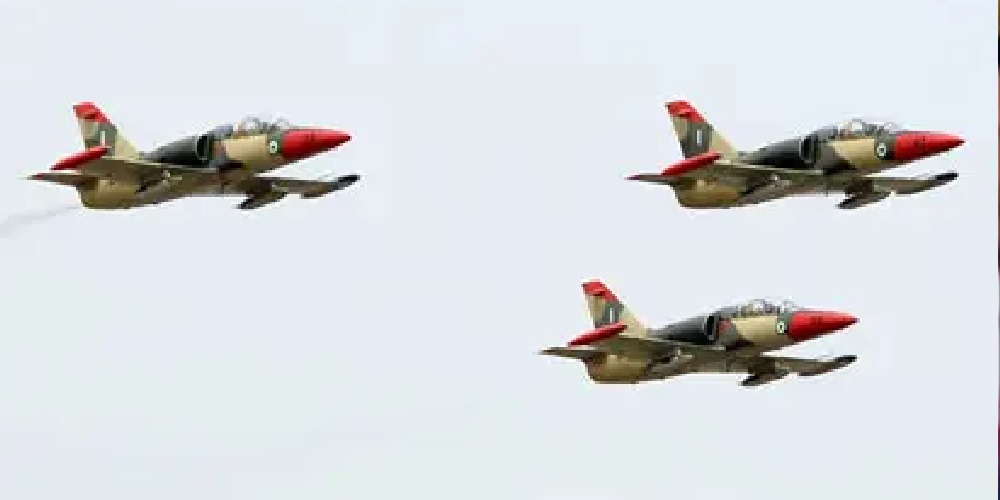
The Nigerian Air Force on Thursday announced that two coordinated airstrikes had successfully neutralised several terrorists and destroyed their hideouts in Borno State.
The precision strikes, carried out under the Air Component of Operation Hadin Kai, targeted known insurgent enclaves in Kollaram and Arra—two areas identified as long-standing terrorist strongholds within the Sambisa general area and the Southern Tumbuns.
According to a statement released by the Director of Public Relations and Information at NAF Headquarters, Air Commodore Edward Gabkwet, the first operation was conducted at approximately 5:30 a.m. in Kollaram, following credible intelligence and surveillance footage that confirmed the presence of high-value terrorist commanders and operational facilities.
“In a bold display of force and precision, the Nigerian Air Force, under Operation Hadin Kai, executed two highly successful air interdiction missions on April 15, 2025, targeting terrorist strongholds in Borno State’s Sambisa general area and the Southern Tumbuns,” the statement read.
“The first strike occurred at approximately 5:30 a.m. in Kollaram, a known insurgent hub. Intelligence reports, corroborated by surveillance footage, confirmed the presence of high-value terrorist commanders and several operational structures, including those equipped with solar panels. NAF assets executed a precision strike, eliminating numerous fighters and disabling key infrastructure.”
Later in the day, at about 3:55 p.m., another strike was carried out in Arra, also within the Sambisa axis.
According to Ejodame, real-time visuals obtained from Intelligence, Surveillance, and Reconnaissance missions revealed clusters of armed militants actively operating in the area.
“Precision-guided munitions were employed during the mission, resulting in the effective destruction of identified targets and significant disruption of the group’s operational capabilities,” he added.
Ejodame emphasised that the airstrikes form part of an ongoing and intensified aerial campaign aimed at degrading terrorist capabilities, dismantling leadership structures, and eliminating insurgent sanctuaries across the region.
Meanwhile, the Defence Headquarters said on Thursday that troops neutralised a notorious terrorist kingpin, Bello Kaura, in a precision airstrike conducted by troops of Operation Fasan Yamma.
Kaura was among the scores of terrorists neutralised by troops between April 10 and 16, 2025, according to the DHQ.
A statement by the Director, Defence Media Operations, Maj. Gen. Markus Kangye, said troops, in collaboration with other security agencies and hybrid forces, carried out a series of coordinated operations in Zamfara, Sokoto, Kaduna, Niger, Kwara States, and the FCT among others.
These operations, he said, were marked by fierce engagements with terrorists, leading to the killing of several insurgents, arrests of suspects, and recovery of a cache of arms and ammunition.
“Between 10 and 16 April 2025, troops conducted fighting patrols and made contact with terrorists in Anka, Tsafe, Talata Mafara, Kaura Namoda and Maru LGAs of Zamfara State as well as Gudu, Isa and Tangaza LGAs of Sokoto State. They conducted operations in Giwa, Chikun and Birnin Gwari LGAs of Kaduna State as well as Bida LGA of Niger State.
“During the encounters, many terrorists were neutralised, including an identified terrorist kingpin, Bello Kaura, in an air interdiction, arrested some of them, while 17 kidnapped victims were rescued,” he said.
He also said troops thwarted oil theft worth over ₦262.7m and arrested suspects.
“During the week under review, Operation DELTA SAFE foiled oil theft worth over N262,702,150.00 only.
“The breakdown indicates: 117,395 litres of stolen crude oil, 22,050 litres of illegally refined AGO, 6,000 litres of DPK and 8,060 litres of PMS. Additionally, they discovered and destroyed 102 crude oil cooking ovens, 94 dugout pits, 18 boats, four speedboats, 56 storage tanks, 164 drums and 42 illegal refining sites. Other items recovered include pumping machines, drilling machines, galvanised pipes, tricycles, motorcycles, mobile phones and nine vehicles,” he said.
Kangye assured the citizens of the Armed Forces’ commitment to protecting national sovereignty and ensuring the safety of all law-abiding citizens.
He said to deny the criminals freedom, the military would take the battle to them.
“We are taking the battle to the enemy to deny them freedom of action, making them thirst for surrender.
“I wish to reiterate the untiring commitment of the Armed Forces of Nigeria to dominate and act in defence of our nation’s sovereignty while guaranteeing the protection of all law-abiding citizens to promote the betterment of our society.
“Our operations across all theatres remain focused, intelligence-driven, and in line with the highest standards of professionalism and respect for human rights,” Kangye added.
He called on the civil populace to continue supporting military operations.
Kangye said, “We once again appeal that the civil populace trust us and see us as friends and partners working for the general good and well-being of the nation. We recognise the sacrifices made daily by our gallant troops, and we salute their courage and dedication.”
-

 News17 hours ago
News17 hours agoBREAKING: Unknown gunmen reportedly storm Senator Natasha’s family residence
-

 News20 hours ago
News20 hours agoSnub story on removal of Rivers Sole Administrator, it’s FAKE-Chief Registrar
-

 News19 hours ago
News19 hours agoSAD! Again, Alleged Herdsmen Attack Three Benue Communities
-

 News11 hours ago
News11 hours agoAbuja light rail project must be commissioned on May 29-Wike vows
-

 Politics19 hours ago
Politics19 hours agoPDP govs are jokers, can’t stop coalition train, Atiku boasts
-

 News17 hours ago
News17 hours agoLawmaker Slams NBA Over Rivers Crisis, Demands Return of N300m
-

 News15 hours ago
News15 hours agoFinally , Lagos Court frees Quadri, young Nigerian who stood before Obi’s convoy in viral photo
-
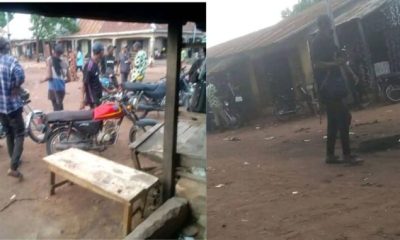
 News12 hours ago
News12 hours agoJust in: Alleged Herdsmen Armed With AK-47 Rifles Take Over Communities In Benue State






